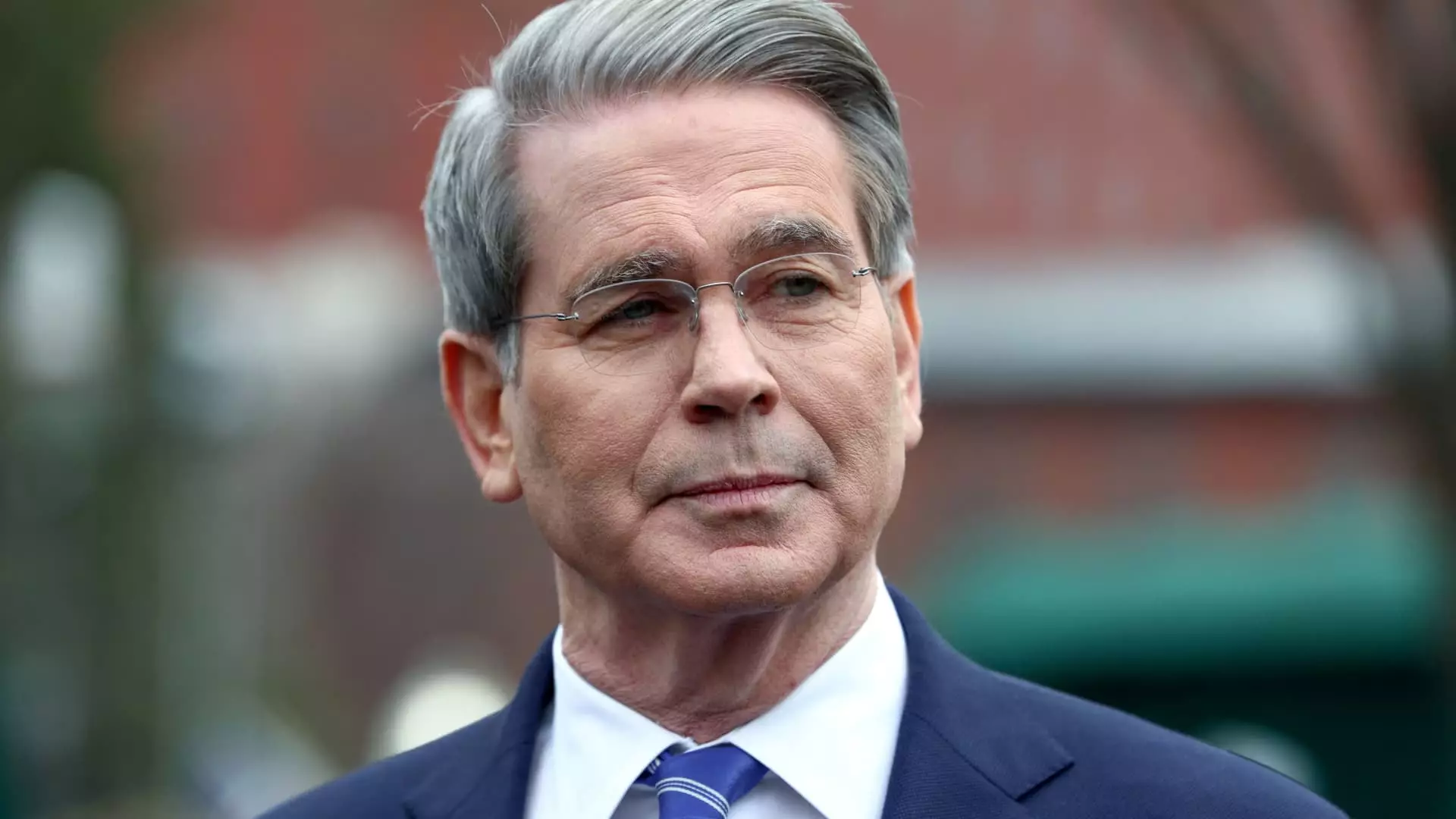In a recent dialogue on NBC News’ “Meet the Press,” Treasury Secretary Scott Bessent presented a comforting narrative for Americans grappling with the current economic storms. Dismissing fears surrounding a looming recession and the potential impact on retirement savings, Bessent argued that the Trump administration is diligently crafting a foundation for lasting prosperity. However, such proclamations may reflect more of an unchecked optimism than an authentic understanding of the economic landscape facing average citizens.
The validation of one’s retirement plans, particularly for those on the brink of retirement, shouldn’t be trivialized or dismissed as a “false narrative.” Bessent’s assertions hinge on an idealistic view that average Americans possess the luxury of long-term financial philosophies while managing their retirement portfolios. In reality, rising inflation, stagnant wages, and a volatile stock market create a precarious state where many individuals simply cannot afford to gamble on “long-term” returns when short-term survival is paramount. The cavalier dismissal of genuine economic concerns may leave retirees and near-retirees feeling disregarded and vulnerable.
Market Reactions: A Dangerous Game of Underestimation
Bessent’s comments leading to the Trump administration’s tariffs evoke a sense of blind faith in market recovery and growth. He suggested that the market tends to undervalue Trump’s business acumen, yet history tells us that such underestimation can lead to dire consequences. The stock market’s swift downturn following the tariff announcement sends a profound signal: policies shaped in haste without regard for potential fallout can quickly erode the trust and confidence of investors and consumers alike.
Suppose we entertain Bessent’s perspective that the administration is pursuing a necessary course of action to rectify a “long-term economic problem.” In that case, the approach raises uncomfortable questions about whether this strategy is genuinely in the best interests of working-class citizens. Economic revolutions often create challenges for those on the lower rungs of the socioeconomic ladder, and without careful navigation, the fragile progress achieved can easily turn into regression.
Tariffs as Reform: A Double-Edged Sword
When analyzing Bessent’s staunch support for the administration’s tariff strategy, it is crucial to unpack the multifaceted implications these policies have on everyday Americans. While wielding tariffs as a weapon against perceived trade disadvantages may seem an attractive measure, the potential consequences invoke serious caution. Historical examples indicate that such measures often lead to job losses, increased costs for consumers, and a ripple effect of uncertainty in the market. Bessent referenced Reagan’s tenure as a parallel, but familiar patterns of economic adjustment carried significant burdens for many Americans.
Moreover, to place the onus of adjustment on consumers while promoting the narrative of a pending economic renaissance is disingenuous. For many, “holding the course” equates to enduring financial difficulties rather than achieving lasting prosperity. The assurance of “jobs and businesses coming back” rings hollow against the backdrop of tangible economic anxiety that persists across increasing demographics in the nation.
Redefining Economic Fundamentals: An Enigma Wrapped in Rhetoric
As we delve deeper into Bessent’s claim regarding the “long-term fundamentals” being fortified under Trump, one must question the sincerity and functional reality behind this assertion. Indeed, the administration’s rhetoric often emphasizes a vision of economic resurgence, yet the absolute reliance on contested strategies—such as tariffs—illustrates a paradox of stability juxtaposed with volatility.
Furthermore, the framing of a “previous administration’s unsustainable systems” as blame for economic woes does little to cultivate collaborative discussions centering around responsible policymaking. Instead, it engenders a divisive atmosphere, detracting from viable solutions that engage both liberal and conservative ideologies toward constructive economic discourse.
For many citizens, the economic narrative propagated by Bessent and the Trump administration feels detached from their lived experiences. The nuance of economic fundamentals such as sustainability, equality, and interconnectedness often flattens into platitudes without concrete plans for their realization. It is critical for those in positions of authority to engage in dialogues that not only validate the fears of everyday citizens but also responsibly address the policies that may deem these fears as miscalculations in a façade of prosperity.
In sum, the refrain from Bessent regarding a solid economic future cannot overshadow the pressing realities that shape American life today. Disregarding the complexities of investment sentiments, consumer behavior, and market realities ultimately creates a gulf between the political narrative and the grounded experiences of the populace.


Leave a Reply